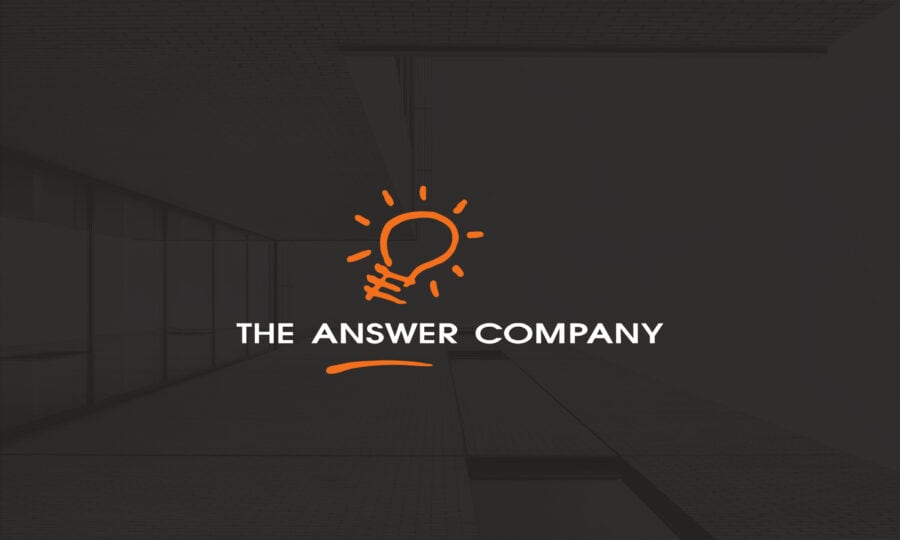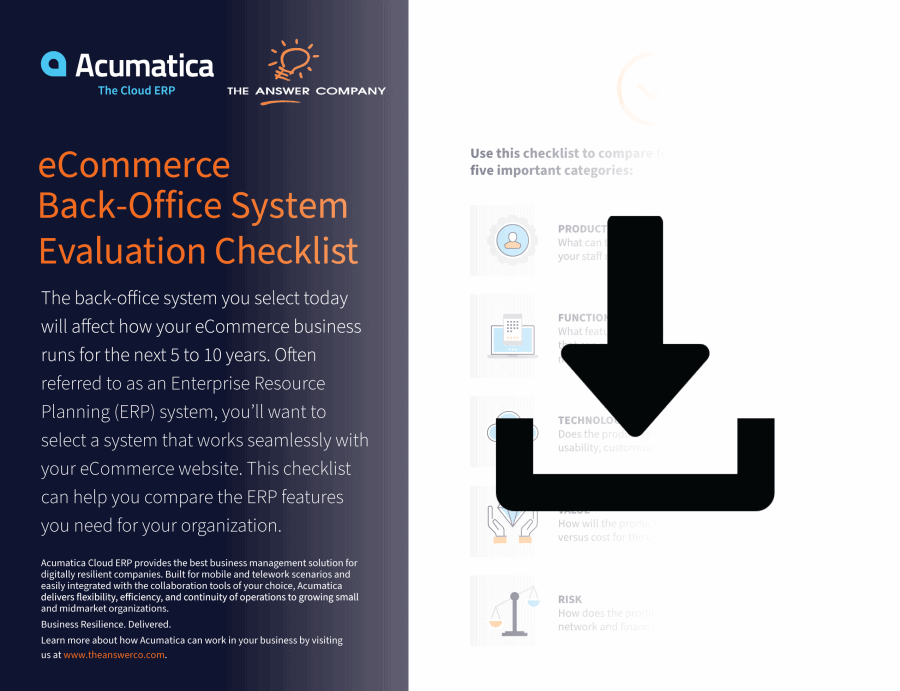What to Look for in an eCommerce ERP
A well-fitted ERP system that matches your business model and is flexible for your growth goals can help you save huge costs year after year. There are many features that can be available in an eCommerce ERP, making it difficult to find a back-end solution that will affect your business for the next decade. Whether you think you may have outgrown your current tech stack or are in search of a new solution, consider the following things to look for in an ERP for eCommerce management.
To get a clearer picture for your eCommerce ERP selection, use our eCommerce Back-Office System Evaluation Checklist, available for download below.
Evaluating an eCommerce ERP
1. Productivity
Productivity is driven by systems that talk to each other. Search for an ERP that can integrate with systems for CRM, inventory, sales, distribution, and of course, your eCommerce platform. This not only reduces manual duplicate data entry and prevents errors, but it also can provide many insights. Other qualities that can drive productivity is the usability of the ERP. Consider an ERP that is easy-to-use, multilingual, multicurrency, and customizable to different users and stakeholders. Other functionalities that can speed along operations include process automations, alerts and notifications, easy information sharing, and collaboration tools.
2. Functionality
Avoid scope creep and scope seep by focusing only on functions that directly benefit your business. Some primary features to look for are systems for quote-to-cash and procure-to-pay, financial management, and business intelligence (BI), so you don’t have to onboard separate systems for these aspects. Make sure these systems are scalable for if your eCommerce business grows to house multiple companies, warehouses, and international storefronts. Consider what native or complementary integrations can be easily done through the ERP, without many added development costs.
3. Technology
The technology of your eCommerce ERP should easily sync with your website without additional development costs. You should also search for a solution that has a responsive design, is customizable, and has a friendly user interface. Database structure should support all integral needs including reporting, BI, financial statements, and audits. Your database should not only be comprehensive, but also data-secure and easy to export. Lastly, search for a solution that can be deployed both on-premise or on the cloud. True cloud-based solutions allow your team to access data anytime and anywhere, and offer real-time data backups every minute, which can become increasingly beneficial as your business expands.
4. Value
A new eCommerce ERP should be the base of your tech stack for at least the next decade, so it’s important to select one that provides a high ROI, even as you scale. Search for a solution that includes all licensing, support, hardware, upgrade, and hosting costs within the first deployment, proving a low total cost of ownership (TCO). And as you scale, you’ll need a solution that can also be scaled to handle heavier sales volumes and customer data. Good value is achieved through having flexible licensing options and reduced internal IT costs. Most importantly, avoid an eCommerce solution that charges extra fees for each added user. Instead, find a pricing structure that is charge-by-resource — so you’ll only ever have to pay for what you need.
5. Risk
There are many basic things that if overlooked, can cause major data breaches and operational failures. To avoid an ERP implementation failure, look for a solution that offers best-in-class security, on top of having data secured on the cloud and in a backup system. Preferably, also find an ERP that easily connects with many different third-party systems, as well as cloud-hosting leaders like Amazon and Microsoft. Lastly, search for a solution that has proven ROI numbers and case studies with deployments for eCommerce companies with a similar business model as your own.

